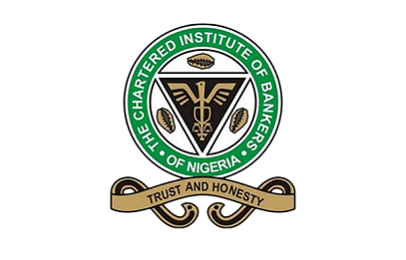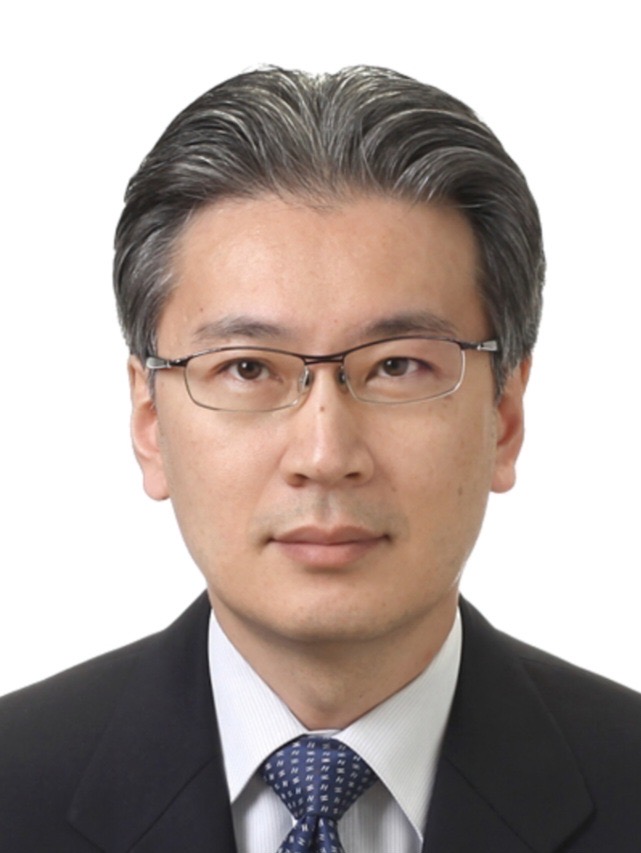The Oyo State Government has firmly dismissed allegations by the All Progressives Congress (APC) that Governor Seyi Makinde’s administration secured a fresh N300 billion loan, labeling the claims as reckless, baseless, and deliberately misleading. In a detailed statement released on August 30, 2025, the government clarified that the Oyo State House of Assembly approved a total of N300 billion, split into N149 billion for refinancing existing loans and N151 billion for infrastructure investment and contractor financing. The statement emphasized that these approvals are part of a strategic financial plan aimed at reducing the state’s debt burden, ensuring timely project delivery, and fostering sustainable economic growth. The government’s response not only addresses the APC’s allegations but also highlights its achievements in financial management and infrastructure development, contrasting them with the APC’s tenure, which it claims was marked by economic stagnation and mismanagement. This article provides an in-depth analysis of the issue, the government’s clarifications, and the broader implications for Oyo State’s development trajectory.
The APC’s Allegations and the Government’s Rebuttal
The controversy began when the APC, the main opposition party in Oyo State, alleged that Governor Seyi Makinde’s administration had secured a fresh N300 billion loan, implying reckless borrowing that could burden the state’s finances. The claim sparked public debate, with some residents expressing concern about the state’s debt profile. However, the Oyo State Government swiftly issued a statement to set the record straight, accusing the APC of spreading misinformation to discredit the administration’s achievements.
According to the government, the N300 billion approved by the Oyo State House of Assembly is not a new loan but a combination of two distinct financial arrangements: N149 billion for refinancing existing loans and N151 billion for infrastructure investment and contractor financing. The refinancing component, the statement explained, is designed to replace older, costlier loans with more favorable terms, thereby reducing the state’s repayment burden and freeing up resources for development projects. “This refinancing is not new borrowing; it is responsible financial management,” the statement asserted, emphasizing that the move reflects prudent fiscal planning rather than fiscal irresponsibility.
The N151 billion allocated for infrastructure investment and contractor financing, the government noted, is structured to support both ongoing and new projects while maintaining stable cash flow. This arrangement ensures that contractors are paid promptly, preventing delays in critical infrastructure projects that are vital to Oyo State’s economic growth. The government’s statement underscored the importance of contractor financing in guaranteeing the timely delivery of major projects, which have been a cornerstone of Governor Makinde’s development agenda since he assumed office in 2019.
The government accused the APC of deliberately distorting Oyo State’s financial record to score political points. It contrasted the current administration’s achievements with the APC’s eight-year tenure from 2011 to 2019, which it described as a period of economic paralysis marked by unpaid salaries, abandoned projects, and a stagnant economy. The statement highlighted the growth of Oyo State’s Internally Generated Revenue (IGR) from N20 billion in 2018 to over N70 billion annually by 2025, achieved without imposing new taxes on citizens. This significant increase in IGR, the government argued, demonstrates its commitment to fiscal discipline and economic self-reliance.
Details of the Financial Arrangements
The Oyo State Government provided a detailed breakdown of the N300 billion approval to clarify the misconceptions propagated by the APC. The N149 billion allocated for refinancing existing loans is a strategic move to optimize the state’s debt portfolio. Many of the loans inherited from previous administrations carried high interest rates and unfavorable terms, placing a significant burden on the state’s finances. By refinancing these loans, the Makinde administration aims to secure lower interest rates and longer repayment periods, which will reduce the annual debt servicing costs and free up funds for other priorities.
The N151 billion approved for infrastructure investment and contractor financing is aimed at sustaining the momentum of Oyo State’s development projects. This funding will support a range of high-impact initiatives, including:
Phase 2 of the 110 km Rashidi Ladoja Circular Road: This ambitious project is designed to improve connectivity within Ibadan, the state capital, and stimulate economic activity by facilitating the movement of goods and people. The circular road is expected to decongest the city, reduce travel times, and attract investment to surrounding areas.
Upgrades to the Samuel Ladoke Akintola Airport: The airport, located in Ibadan, is undergoing significant improvements to enhance its capacity and functionality. These upgrades will position Oyo State as a regional hub for air travel and cargo, boosting tourism and commerce.
Construction of Feeder Roads: The government is investing in feeder roads across all zones of the state to improve rural connectivity and stimulate economic growth. These roads will enable farmers to transport their produce to markets more efficiently, support small businesses, and enhance access to essential services.
The government emphasized that these projects are critical to its vision of transforming Oyo State into a model of inclusive and sustainable development. By prioritizing infrastructure, the administration aims to create jobs, reduce poverty, and improve the quality of life for residents.
Countering APC’s Claims on FAAC Allocations
In addition to refuting the loan allegations, the Oyo State Government addressed a claim by an APC lawmaker who suggested that the state’s Federation Account Allocation Committee (FAAC) revenues had increased by 500 percent. The government clarified that the actual increase is closer to 75 percent, accusing the lawmaker of demonstrating a “poor grasp of basic figures.” This discrepancy, the statement argued, reflects the APC’s tendency to manipulate data for political gain.
The government provided context for the FAAC increase, noting that it is largely due to improved federal revenue collection and the removal of fuel subsidies, which have increased allocations to all states. However, it stressed that Oyo State’s financial management has been exemplary, as evidenced by its ability to grow IGR significantly without burdening citizens with new taxes. The statement also highlighted the administration’s transparency in financial reporting, with regular updates provided to the public through the Oyo State Budget Office and other channels.
Oyo State’s Financial Achievements Under Makinde
The government’s statement took the opportunity to highlight its financial achievements since Governor Makinde assumed office in 2019. Under the APC’s eight-year administration, Oyo State struggled with economic challenges, including unpaid salaries, abandoned infrastructure projects, and a reliance on federal allocations. The Makinde administration, by contrast, has implemented policies to boost IGR, streamline expenditure, and prioritize development projects that deliver tangible benefits to residents.
The growth of IGR from N20 billion in 2018 to over N70 billion in 2025 is a testament to the administration’s efforts to diversify revenue sources and improve tax administration. Key initiatives include the digitization of revenue collection processes, the expansion of the tax base through voluntary compliance, and the promotion of public-private partnerships to drive economic growth. These efforts have enabled the state to fund critical projects without resorting to excessive borrowing or imposing new taxes.
The government also pointed to its track record of completing inherited projects and initiating new ones. For example, the rehabilitation of major roads, the revitalization of healthcare facilities, and the modernization of educational institutions have been hallmarks of the Makinde administration. The commissioning of Phase 1 of the Rashidi Ladoja Circular Road and the ongoing upgrades to the Samuel Ladoke Akintola Airport are among the flagship projects that demonstrate the government’s commitment to infrastructure development.
Criticism of the APC’s Tenure
The Oyo State Government used its statement to draw a sharp contrast between its achievements and the APC’s record during its eight-year rule from 2011 to 2019. According to the government, the APC administration left a legacy of economic stagnation, with unpaid salaries and pensions creating hardship for workers and retirees. Abandoned projects, such as uncompleted roads and public buildings, further eroded public trust in the government.
The statement accused the APC of mismanaging Oyo State’s resources, leading to a paralyzed economy that struggled to meet the needs of its citizens. It argued that the opposition’s recent allegations are an attempt to distract from its own failures and undermine the progress made under Governor Makinde. “The APC’s attempt to distort Oyo State’s financial record is a desperate move to rewrite history,” the statement said, urging residents to focus on the tangible improvements delivered by the current administration.
Implications for Oyo State’s Development
The commissioning of the N300 billion financial plan, comprising refinancing and infrastructure investment, has significant implications for Oyo State’s development. The refinancing of existing loans will reduce the state’s debt servicing costs, allowing it to allocate more resources to critical sectors such as education, healthcare, and agriculture. This financial strategy aligns with Governor Makinde’s “Roadmap to Accelerated Development in Oyo State,” which emphasizes sustainable growth and equitable resource distribution.
The infrastructure investments, particularly in the Rashidi Ladoja Circular Road, the Samuel Ladoke Akintola Airport, and feeder roads, are expected to drive economic activity across the state. The circular road, for instance, will enhance connectivity in Ibadan, one of Nigeria’s largest cities, and attract investment to emerging commercial hubs. The airport upgrades will position Oyo State as a regional transportation hub, facilitating trade and tourism. Meanwhile, the construction of feeder roads will improve access to markets and services in rural areas, supporting the state’s agricultural sector, which is a major employer.
The government’s focus on contractor financing also ensures that projects are completed on time, avoiding the delays and cost overruns that plagued previous administrations. By maintaining stable cash flow, the state can sustain its development momentum and deliver on its promises to residents.
Public and Political Reactions
The Oyo State Government’s response to the APC’s allegations has been met with mixed reactions. Supporters of Governor Makinde have praised the administration for its transparency and commitment to responsible financial management. Community leaders and business owners in Ibadan and other parts of the state have expressed optimism about the infrastructure projects, which they believe will create jobs and stimulate economic growth. “The circular road and airport upgrades will transform Ibadan,” said a local trader. “We trust Governor Makinde to deliver because we’ve seen his work.”
However, the APC has maintained its criticism, with some party members insisting that the N300 billion approval raises concerns about the state’s debt sustainability. The opposition has called for greater transparency in how the funds will be utilized, arguing that residents deserve a detailed breakdown of the projects and their costs. Political analysts, however, note that the APC’s allegations may be motivated by the upcoming 2027 elections, as the party seeks to challenge Makinde’s growing popularity.
Civil society organizations have called for continued oversight of the state’s financial decisions to ensure accountability. Groups like the Oyo State Transparency Initiative have urged the government to publish detailed reports on the refinancing process and the allocation of infrastructure funds. They have also emphasized the importance of public participation in monitoring project implementation to prevent mismanagement.
The Broader Context: Nigeria’s Economic Challenges
The controversy over Oyo State’s financial plan reflects broader challenges in Nigeria’s economic landscape. Many states rely heavily on federal allocations and loans to fund development projects, given the limitations of their IGR. The removal of fuel subsidies in 2023 and the subsequent increase in FAAC allocations have provided states with more resources, but rising inflation and currency depreciation have eroded purchasing power. Oyo State’s ability to grow its IGR to over N70 billion annually without new taxes is a significant achievement in this context, demonstrating the potential for states to achieve financial independence.
The refinancing of loans is a common strategy among Nigerian states to manage debt burdens, particularly in the wake of economic reforms. By securing better terms, states can reduce the cost of debt servicing and allocate more funds to development priorities. Oyo State’s approach aligns with this trend, positioning it as a leader in fiscal responsibility among Nigeria’s 36 states.
The Path Forward
As Oyo State moves forward with its financial and infrastructure plans, the government faces the challenge of sustaining public trust and delivering on its promises. The successful implementation of projects like the Rashidi Ladoja Circular Road and the Samuel Ladoke Akintola Airport will be critical to maintaining public support. The administration must also continue to engage with residents, providing regular updates on project progress and financial management to counter opposition narratives.
The APC’s allegations, while dismissed by the government, highlight the importance of transparency in public finance. The Makinde administration can strengthen its position by publishing detailed reports on the refinancing process and the allocation of infrastructure funds. Engaging independent auditors and civil society organizations in monitoring these processes will further enhance credibility.
For the people of Oyo State, the financial plan represents an opportunity to build a more prosperous and connected future. The infrastructure investments, if executed effectively, will create jobs, improve access to services, and drive economic growth. As the state navigates the challenges of development in a complex economic environment, Governor Makinde’s leadership will be tested by his ability to balance fiscal responsibility with ambitious development goals.
Conclusion
The Oyo State Government’s dismissal of the APC’s N300 billion loan allegations underscores its commitment to responsible financial management and transformative infrastructure development. By clarifying that the funds are for refinancing existing loans and supporting high-impact projects, the government has sought to set the record straight and highlight its achievements. The growth of IGR, the completion of inherited projects, and the initiation of new ones reflect the Makinde administration’s dedication to improving the lives of Oyo State residents. As the state moves forward with its development agenda, the focus will be on delivering projects like the Rashidi Ladoja Circular Road and the Samuel Ladoke Akintola Airport, which promise to drive economic growth and enhance connectivity. By maintaining transparency and accountability, the Oyo State Government can continue to build trust and position the state as a model of sustainable development in Nigeria.








